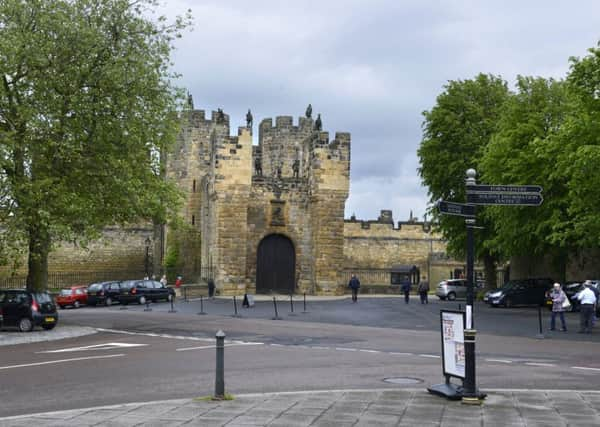Alnwick, History Society


The October meeting of Alnwick and District Local History Society received a talk from the society’s treasurer entitled Eustace, John and Magna Carta.
It detailed the significant part in the disputes between King John and his barons and Alnwick’s own baron, Eustace de Vesci.
Advertisement
Hide AdAdvertisement
Hide AdMagna Carta was sealed by John on June 15, 1215, after five days of negotiations at Runnymede.
The barons had many grievances. These included the arbitrary nature of the King’s legal judgements, his loss of all the Plantagenet possessions in France, and his government of the Royal Forests. These were the King’s own demesne, and covered about a third of the country.
John was also a notorious libertine, preferring liaisons with aristocratic women.
There is a story, told by Walter of Guisborough, that John lusted after Eustace de Vesci’s wife and lured her to go to him by a trick, which was foiled only by luck. It is doubtful whether the actual details of the story are true, but its general purport may well be as Eustace suddenly turned against John in 1210/1212 in a manner which does appear very personal.
Advertisement
Hide AdAdvertisement
Hide AdIn 1212, John was collecting an army for a continental campaign when a Welsh invasion caused him to change his plans. En-route to Chester, he heard of a plot against his life, whereupon he disbanded his army and summoned mercenaries.
The ringleaders, Eustace de Vesci and Robert Fitz Walter, fled. lnwick Castle was then garrisoned by new sheriffs loyal to the king.
Another of John’s enemies was Pope Innocent III. John had refused to accept the Pope’s nominee, Stephen Langton, as Archbishop of Canterbury, and the Pope had responded by placing the whole country under an interdict. John was excommunicated in 1209.
He then made up his quarrel, and England became a papal fiefdom. Innocent made him pardon Eustace and Fitz Walter.
Advertisement
Hide AdAdvertisement
Hide AdThe most determined opponents of the King were known as The Northerners, though there were also many barons from central and eastern England. They refused to provide military service for the king.
In 1214, John began his campaign in France, using some loyal English troops, mercenaries and continental allies.
John’s army attacked from the south, but as it was unwilling to fight, it all failed disastrously. The King’s allies in the north were more successful and only narrowly lost the final battle (Bouvaine).
This loss directly led to the establishment of Frederick II in Germany, the supremacy of France, the loss of John’s continental empire, and Magna Carta.
Advertisement
Hide AdAdvertisement
Hide AdThe original Magna Carta included a security clause for 25 barons to act as an authority overseeing its implementation. Eustace was a leading member of this group.
John hoped that he could ignore the charter’s provisions, but it had been widely circulated throughout the country.
He enlisted the Pope’s help, and in August 1215, a Papal Bull was issued annulling the charter.
An assembly of the “chief men” deposed John, and offered the throne to the Dauphin of France, Louis, leading to a civil war.
Advertisement
Hide AdAdvertisement
Hide AdEustace was now with the Scottish army, travelling south to meet up with Louis, and was killed at Barnard Castle.
Meanwhile, John, with a mercenary army, was travelling the kingdom. It was at this time he lost his baggage, including his massive treasure, in the Wash.
Shortly after, at Newark on the night of October 17, he died following an attack of dysentery. Whether this was from natural causes or poison, as was rumoured later, we shall never know.
The next meeting of the society will be on November 22, at 7.30pm, at Bailiffgate Museum. Doors open at 7pm. Dr Tony Barrow will be talking about Smuggling on the North East Coast.